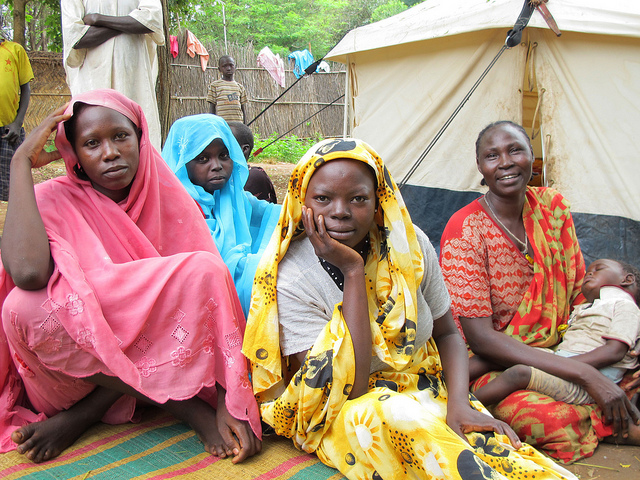
Last Thursday, Enough Project Co-founder John Prendergast was on Capitol Hill to brief House members and staff on the current situation in Sudan. Joining him for the discussion were Alan Jury, director of the World Food Programme’s U.S. relations office, Congressmen Frank Wolf (R-VA), Jim McGovern (D-MA), Al Green (D-TX), Congresswoman Barbara Lee (D-CA), the newly appointed co-chair of the Congressional Sudan Caucus, and the Enough Project’s Sudan Advisor, Omer Ismail. The purpose of the briefing was to bring up-to-date information to members on the Hill and solicit bipartisan support for the Sudan Peace, Security and Accountability Act of 2012.
In recent weeks, instability in Sudan has transformed into daily violent exchanges along the southern border and aerial bombardments well into South Sudan. With several regions facing severe humanitarian crises, and increasing calls for democratization and regime change in Khartoum, the international community faces the challenge of devising a comprehensive strategy for engaging with Sudan in order to prevent a rising crisis within Sudan’s borders, not only in relations between Sudan and South Sudan.
Fortunately, the U.S. has an admirable history of bipartisan support for issues related to U.S.-Sudan engagement. At the briefing on April 19, Rep. Wolf called upon his fellow Republicans to continue this trend of bipartisanship, reminding them that during the Reagan years, human rights were a priority and every Republican would have been behind an act calling for comprehensive U.S. engagement with Sudan. If Congress can harness this cooperative spirit, they can set a precedent for international coordination and play a leading role in pressuring Khartoum to step back from the brink of war and return to peaceful negotiations.
Obtaining unimpeded, immediate access to South Kordofan and Blue Nile remains a priority for U.S., but a broader, more long-term agenda must also be laid out while the options for access are being considered. As Omer Ismail noted at the briefing, Sudanese people themselves must first lay out this long term strategy: civil society groups and others on the ground in Sudan should be the ones dictating what they identify as most crucial priorities for the betterment of their lives and country. The international community must then play a supportive role in promoting these aspirations.
Prendergast pointed out that the Comprehensive Peace Agreement of 2005 garnered a high level of success largely because of concerted international pressure on Khartoum to come to a timely and fair agreement on outstanding issues. The hope is that this process can be replicated for the situation in Sudan today.
The bill already has 64 cosponsors with three more expected to join soon. Take action today and ask your representative to cosponsor H. Res. 4169 to promote comprehensive U.S. engagement with Sudan.
Photo: Refugees from Blue Nile at a camp in Ethiopia (Enough / Amanda Hsiao)

